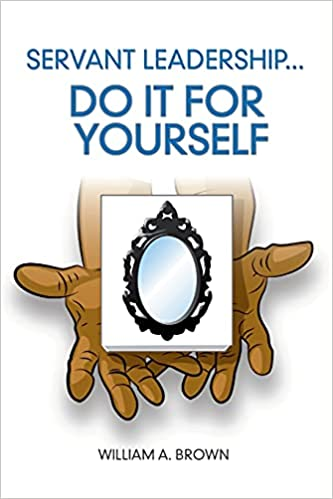Article-Detail

Workers' Comp Works
Workers’ Compensation (Workers’ Comp) was initially established in 1881 by Otto Von Bismarck in Germany. In America it was referred to at Workman’s Comp until the name was changed to the more gender neutral, Workers’ Comp. Otto Von Bismarck would later lead the effort to unify Germany then became the first Chancellor of unified Germany in 1890 but prior to that his 1881 idea evolved into what he called the ‘Sickness Insurance Law’ in 1883, ‘Accident Insurance Law’ in 1884, and the ‘Old Age and Disability Law’ in 1889. His goal was to establish “social rights to enhance the integration of a hierarchical society, to forge a bond between workers and the state so as to strengthen the latter, to maintain traditional relations of authority between social and status groups, and to provide a countervailing power against the modernist forces”. In short, these laws assured workers that their workplaces would be safe and assured employers that employees would not sue if they were sick or injured due to conditions at work. The way it worked then (and now) is that money is paid to a carrier who would cover workplace injuries or death to workers or their families in return for protection from litigation.
If you are ever injured at work or develop an illness created by your work environment, report it to your supervisor or Human Resources office immediately. Generally, injured employees have 30 days to report their injury, not reporting the injury puts your claim at risk. Even if you don’t think it's serious, report it. Employers, even if you or the employee does not think it's serious, report it. If it develops into something more serious later, your report will 1. Demonstrate authenticity and 2. Give the employer the opportunity to correct the problem and prevent future injuries. Employers are provided with a form for injured workers to fill out and submit to the carrier. The carrier will follow up with the employee by a visit or phone call. If the injury requires immediate medical attention, go directly to your local care center (hospital) and worry about the form later. If the injury doesn’t require immediate hospitalization, call the carrier and get referred to an approved care center. Minor injuries can usually be closed after a short phone call.
It is unlikely that Workers Comp will send you to your personal doctor, and it is equally unlikely that your personal doctor recommendations will be accepted in lieu of an evaluation by a Workers Comp doctor. Whenever possible, go directly to an approved care center and follow the direction of the physician there. Your personal doctor’s recommendation does not supercede recommendations by the approved physician, the courts have agreed with the state on most cases challenging who is the authority in workers’ comp care. When you are ready to return to work, either on modified duty or full duty, your employer is obligated to have a reentry meeting, known as the ‘interactive process’. This is a nonjudgmental conversation between the employer and employee where modifications and limitations are discussed and an appropriate assignment is made. In some cases an employee will work half of a work day, in others the employee might work another related assignment until they are able to return to full duty. In either case, the employee and employer are obligated to honor the medical restrictions laid out by the doctor.
If an employee violates the restrictions, they put themselves and their claim at risk. If the employee is hurt while violating the restrictions, Workers’ Comp may deny that employee future benefits. An employer who asks or directs an employee to violate medical restrictions exposes himself and the organization to serious liability. An employee who is hurt following the direction of an employer to violate restrictions can sue that employer regardless of his or her Workers’ Comp status.
The Employment Law Free Advice legal team offers useful information about Workers’ Compensation in California.
Income Replacement Benefits
California workers' compensation includes payments made to injured employees while they are injured or ill. The type of income benefit depends on the kind and severity of the injury. Four types are possible: Temporary Total Disability, Temporary Partial Disability, Permanent Total Disability, and Permanent Partial Disability Benefits.
1) Temporary Total Disability Benefits (TTD): While an employee is injured in the short-term and her injury prevents her from working, she will receive 2/3 of her pre-injury average weekly wages each week under TTD.
2) Temporary Partial Disability Benefits (TPD): If an employee is injured and cannot perform all of his old job duties, but is still able to do some kind of work (either at reduced hours or at a reduced wage), he will be paid a certain percentage to make up the difference between his current wage and his pre-injury wage each week, subject to a maximum and a minimum cap.
3) Permanent Total Disability Benefits (PTD): Your injury lasts for an indefinite period of time and it is unclear whether you will ever be able to return to work. You will receive a certain amount of compensation depending on your disability rating, the date of your injury, and the amount of your wages before your injury.
4) Permanent Partial Disability Benefits (PPD): A worker will always suffer the effects of his injury, and may be able to do some work, but not to the extent that he did before. Such injuries include, for example, the loss of a finger or limb. If this is the case, he will get up to 2/3 of his pre-injury wage for as long as 619 weeks.
Additional California Workers' Compensation Benefits
Medical Treatment: An injured or ill employee will have her condition treated and bills paid by the employer's workers' compensation insurance so long as the injury or illness is work-related. Generally, the insurer will directly pay the employee's medical provider for all necessary treatment for the injury or illness.
Mileage Reimbursement: Your travel expenses to and from your medical appointments for your job-related illness or injury should be reimbursed by your employer's workers' compensation insurer, as well as some wages you lose traveling to and from your appointments.
Death Benefits: The relatives of an employee who dies from a work-connected injury are entitled to compensation for lost wages for a limited amount of time. Relatives may also receive money to pay for the worker's funeral costs.
Many times, employees are denied benefits and appeal to the employer for reconsideration. The employer does not make decisions on Workers’ Comp cases. Your boss or HR officer cannot decide on your case even if they wanted to. Equally often, employers suspect Workers’ Comp fraud. If you suspect it, report it, the carrier has resources to investigate your suspicion. The employer does not make recommendations, decisions, or investigations into suspicious claims. If fraud does exist, and it is revealed, serious legal consequences will be applied to those who participate in it. The system isn’t perfect, if you get a decision you disagree with, there are methods of getting second opinions, appeals, and legal remedies. Pursue those.
If you want to limit Workers, Comp cases in your workplace, live up to the spirit of the law and create safer workplaces for employees. Employees who work in a safe environment get more done, are more confident, and spend less time in unproductive ways. If you are hurt, take advantage of this resource, it's there for your use. Workers’ comp does come at a cost but it is much less than litigation, look at it as another arrow in the quiver, and you will SOAR!
William A. Brown
March 1, 2020




